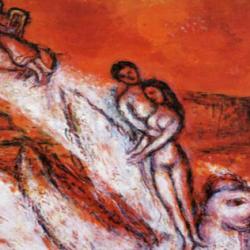More thoughts on Ecclesiastes, stealing, as always, from James Jordan .
The image of “shepherding wind” has a particular application to the king, who is the shepherd of flock of Israel. Solomon recognizes that ruling a kingdom is like trying to shepherd wind, which is of course impossible for human beings. Solomon shepherded a whole nation, and specifically shepherded the workmen on the temple, and came to the insight that this is beyond him.
Anyone who has tried to organize a group of people for anything – a family getting to church, employees to get on with a project, faculty to coordinate their teaching in a school, members of a church for some kind of evangelistic program – knows what Solomon means by “shepherding wind.” Wisdom is a royal virtue, the skill to live well and to rule well, but Solomon knows that part of the wisdom a king needs is the wisdom to know the limitations of his power, the wisdom to know that shepherding a people is like trying to get the wind to stay in a corral.
At the climax of Ecclesiastes (12:11), Solomon makes explicit reference to the wisdom given by the “one Shepherd,” the true Divine Shepherd of Israel. The need for God to directly shepherd His people is not only a “soteriological” reality; it is built into the nature of creation. Precisely because human beings are wind/vapor, there is only one Shepherd who can lead them. Perhaps this supports the idea that the incarnation would have occurred regardless of sin.
We can give this a specifically new covenant spin: Christians have all received the Spirit, and those who are born of the Spirit are like the wind, blowing where they will. Christians are, it would seem, even more uncontrollable by human shepherds than fleshly Israel would have been. There is only one shepherd who can corral those who have been born of the Spirit, and that is the Firstborn of the Spirit, the Good Shepherd. Pastors – or parents or leaders of any sort – who fail to recognize this are doomed either to continual frustration (“these people will not do what I tell them”) or to tyranny (“I’ll get this wind under control, I will if it’s the last thing I do”).
Also, another dimension of the idea of vapor. Vapor doesn’t last; it burns off in the sun. But vapor is also a veil, a screen. Think of the difficulty of trying to drive along a road in a thick fog. Everything disappears; we know there’s a world out there, but the vapor screens it off from you. To say that life is vapor is to say that it’s hiding something. And Solomon appears to be suggesting that the vapor of the world screens us from God Himself, who for the time being, “under the sun,” remains behind the veil of the vaporous world. As Jordan points out, the world is so constructed as to require us to live by faith.















